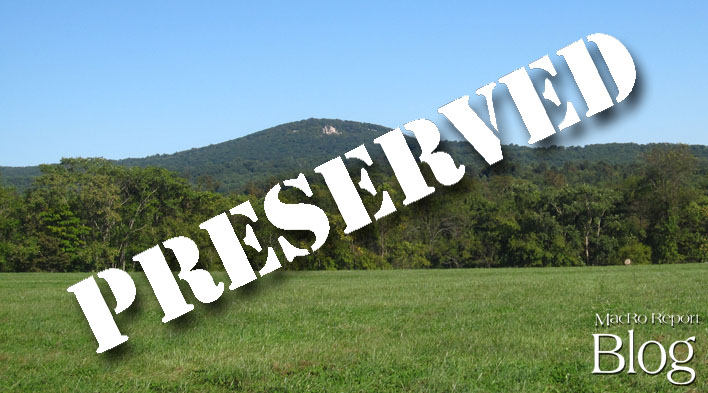Selling to a Land Developer Is Not Your Only Option
 If you’re a landowner exploring what to do with farmland or acreage, developing your land, or selling it to a developer is one option to explore.
If you’re a landowner exploring what to do with farmland or acreage, developing your land, or selling it to a developer is one option to explore.
But it is not your only option.
There are a number of lesser known possibilities to consider, including local and state land preservation programs that can provide you with income while protecting the agricultural heritage, natural resources and resident wildlife on your property.
Let’s explore some of the options available to land owners in Maryland.
Land Preservation Options
There are three primary land preservation options available, all involving the use of easements: easement donation, easement sale, and the transfer of development rights. Land preservation easements are agreements that detail property use restrictions such as residential lot caps, land use permissions, stream buffers and wetland regulations.
Easements can be sold or donated to private conservation organizations or government entities. Typically the landowner forfeits development rights and accepts other land use restrictions in exchange for income and/or tax benefits.
Land preservations programs are attractive to property owners because the owner receives benefits immediately but continues to own the land and it remains an asset that can be sold in the future. Since the easement restricts use of the land, the land’s market value will likely be diminished. The combination of restrictions on use and reduced property value often benefits farmers looking for land to buy—the farmer does not have to compete with developers on the purchase and the price to acquire the property is more likely to be justified by the potential income from agricultural activities.
Let’s take a quick look at these three options, before talking a bit about a fourth, slightly more obscure program.
- Easement Sale
Easement sales are the most prevalent form of land preservation in Maryland. Under this program the landowner essentially sells some, or all, of their property rights—usually to a county or state government entity. The government entity runs these programs as a way to preserve open space and promote agricultural activities but the government does not have any right to use the land. The property owner retains ownership of the land with certain restrictions in place.
The Maryland Agricultural Land Preservation Foundation (MALPF) operates throughout the state. MALPF has permanently preserved 2,154 properties and 292,357 acres representing a public investment of more than $645 million. To learn more about MALPF, click here.
Most counties in Maryland also offer a variety of public land preservation programs such as the Rural Legacy Program, ‘critical farms’ programs and/or ‘installment purchase programs. Easement sales to government entities are subject to the availability of public funds and can ebb and flow along with budget cycles. While less prevalent, there are also private land trusts that participate in easement sale programs.
- Easement Donation
If your primary goal is to preserve the land’s agricultural and natural heritage, or perhaps pass the land down to family members without incurring certain taxes, an easement donation may be worth exploring. Since this is a donation, the donation is not dependent on the availability of public funds.
The Maryland Environment Trust (MET) offers a popular program option. MET was founded in the late 1960’s and holds easements that preserve more than 125,000 acres across every county in Maryland. By donating your easement, you become eligible for any number of substantial income and property tax credits.
- Transferrable Development Rights
Several counties in Maryland including Montgomery, Howard and Frederick offer transfer of development right (TDR) programs. Under TDR programs subdivision rights are transferred from a “sending” parcel to a “receiving” parcel in other parts of the county. Once the rights are sold from a sending parcel, a perpetual land preservation easement is placed on that property. Some TDR programs move development rights from rural areas to urban areas and other programs move the subdivision rights within rural areas. While Frederick County adopted its TDR program in 2014, no property owners have utilized this option to date and it is uncertain whether the program is viable.
The TDR option uses private funding to preserve the property. In essence, you can sell your development rights to a developer, who then applies it to their land, while your land is now protected from development. TDR programs also maintain a balance between growth and preservation efforts in a given county.
- Forest Banking Credits or FRO (Forest Resource Banking Ordinance) Banking Program
A lesser-known option available to land owners is the Forest Banking program. Property owners can establish forest buffers along streams and other environmentally sensitive areas. Perpetual forest conservation easements are placed on these buffer areas; and “forest conservation credits” are then available for sale to developers who are required to provide forestation under the land development approval process.
To learn more detail about Frederick County’s Forest Banking program, click here.
The process of deciding “what to do with my land” should be carefully evaluated. Involving a competent, experienced land broker to help explore the options is warranted. When choosing your land listing broker, choose wisely.
Your broker should not only assess your land but also your desires and goals for the property. A seasoned land broker will help you determine your property’s ‘highest and best use’, but also evaluate the full spectrum of possibilities available to you in your efforts to achieve your unique, personal goals.
MacRo, Ltd. has a long history of successfully identifying opportunities for landowners and then navigating complex government programs which is crucial to a successful outcome. Remember, knowing a program exists is one thing. Making it work for you is entirely another.
Know about a program that would be of interest to a Maryland landowner? Share it with us. We’d love to hear from you.
